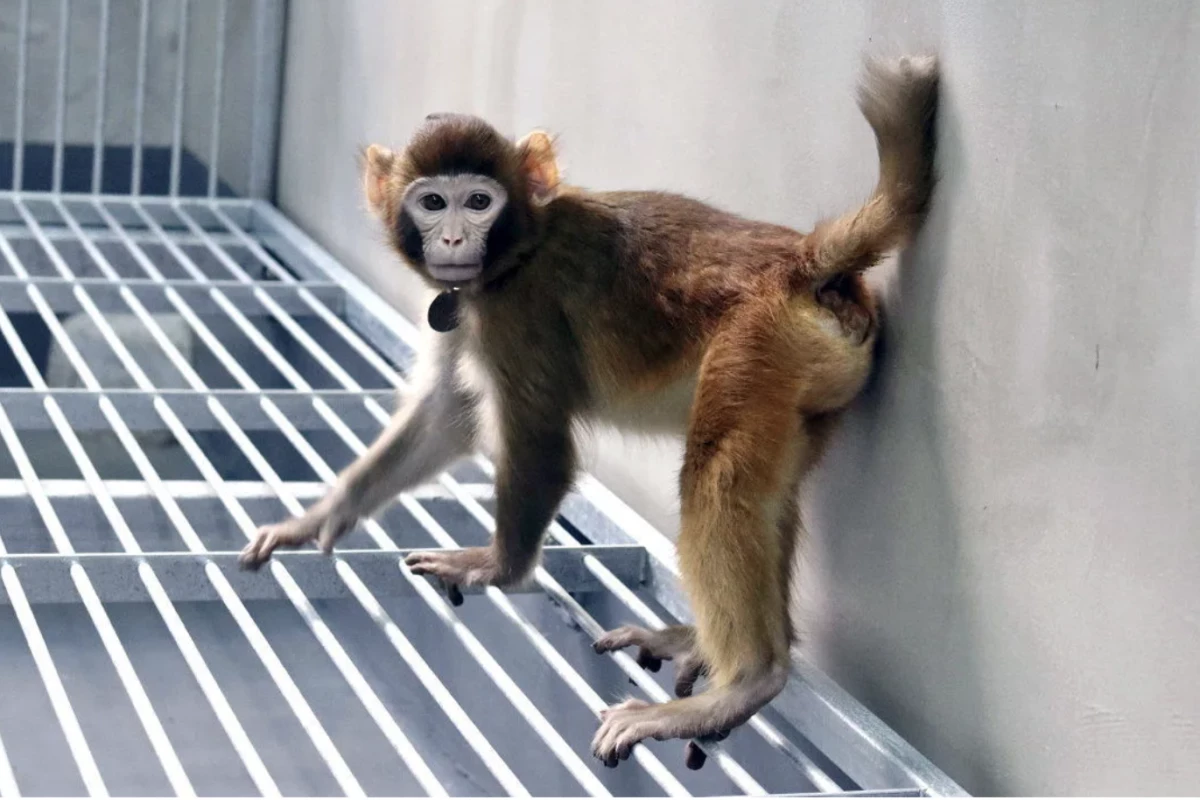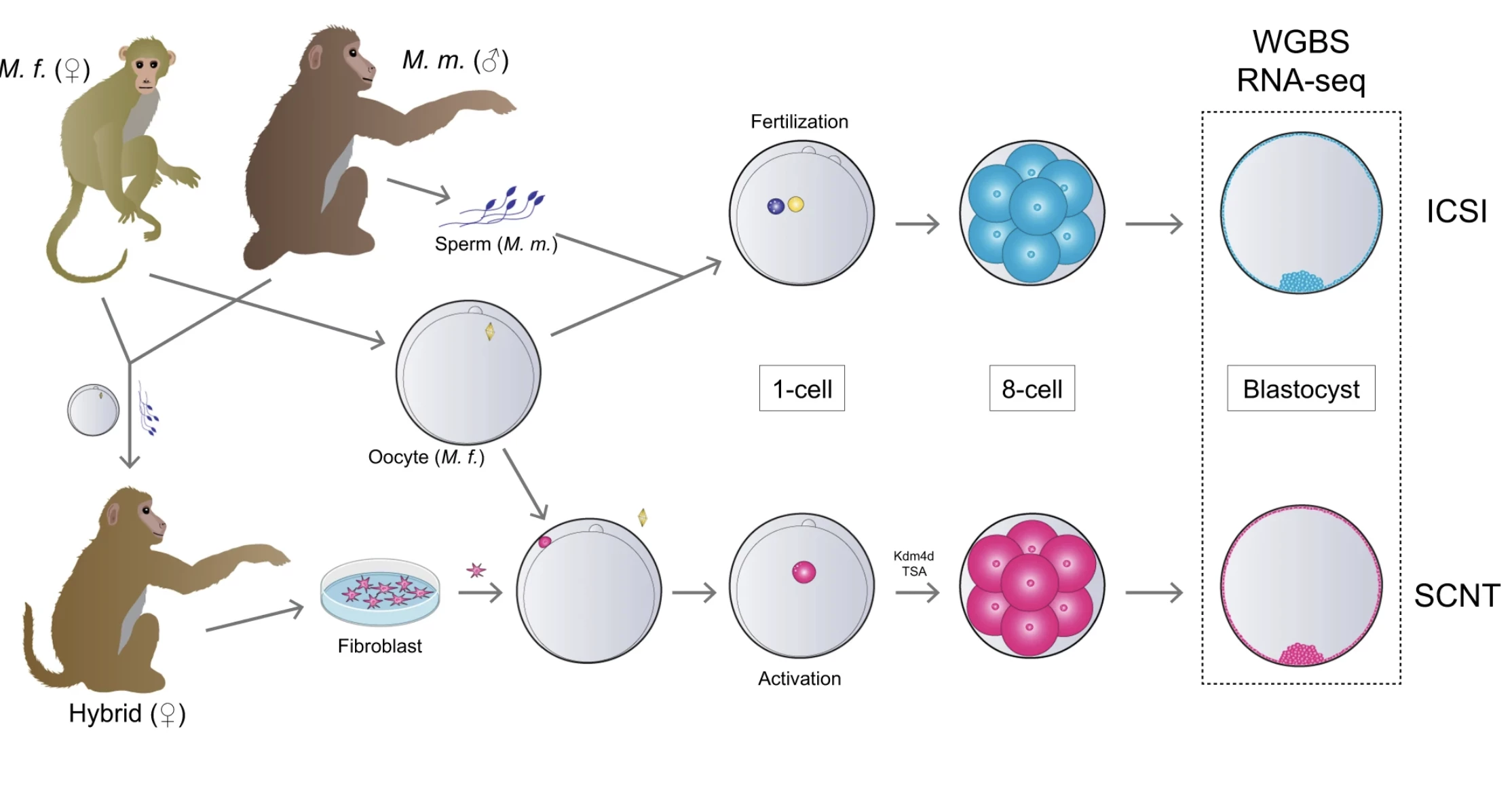Scientists have tweaked traditional cloning of mammals that has resulted in a healthy rhesus monkey who has now passed his second birthday. It’s the first successful cloning of the species, and a big deal for researchers given that primates having proven notoriously difficult to genetically engineer.
The twist on ‘conventional’ cloning – known as somatic cell nuclear transfer (SCNT) – involved a precise game of switcharoo in the initial stages of embryonic development. Traditionally, when the egg containing cloned DNA is implanted into a surrogate’s uterus, there are issues with how the placenta develops, resulting in a high rate of failure. Here, researchers from the Chinese Academy of Sciences (CAS) replaced the cloned embryo’s placenta-forming trophoblast layer with a healthier one from an embryo produced by in-vitro fertilization.
While the scientists celebrate the so far successful life of the male rhesus macaque (Macaca mulatta), who has been named ReTro, as a huge step forward in cloning, placental defects are just one of the many issues that plague SCNT. The process, which sees the nucleus of a body cell inserted into a nucleus-free egg cell, faces widespread biological challenges, and it’s so far been especially fraught in primates.

The team cloned 113 rhesus monkey embryos, but of them only 11 were viable for implantation into seven surrogates, resulting in two pregnancies. Of those, ReTro was the only live birth; the other surrogate lost twins on day 106 of gestation.
The scientists believe there is value in cloning genetically identical animals in order to remove variability in drug efficacy and safety testing. Rhesus monkeys share around 93% of their genome with humans, and therefore are model primates for medical research. However, ethical questions abound, including whether scientists should be cloning human-adjacent organisms to remain in labs to test potential drugs on, instead of finding ways to take animals out of the equation.
It's almost 30 years since Dolly the sheep was cloned by SCNT, and the process has been used to make biological copies of pigs, dogs, mice, cattle, rabbits and primates. The scientists behind this latest creation also engineered one of the few relatively successful primate experiments, cloning two crab-eating macaques (Macaca fascicularis), named Zhong Zhong and Hua Hua, who were born through SCNT in December 2017. Little is known of their fate, following the big reveal by CAS in January 2018.
Yet, despite the low success rate for primates, and ReTro so far proving the exception not the rule for his species, CAS researchers are buoyed by the monkey's endurance, which they credit to the trophoblast tweaking.
"This strategy holds great promise for improving the success rates by addressing issues specifically related to the trophectoderm, which plays a crucial role in early embryonic development and implantation," the researchers noted.
The study was published in the journal Nature Communications.






